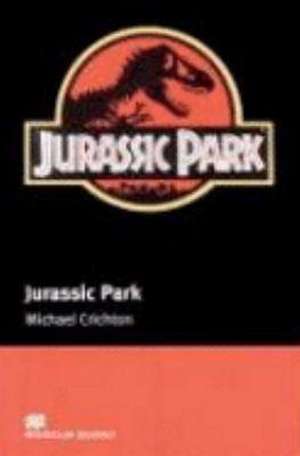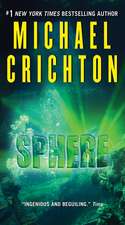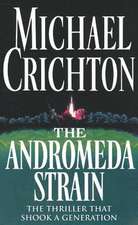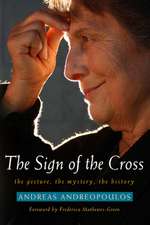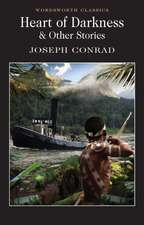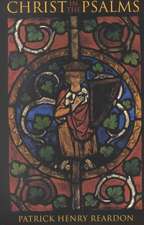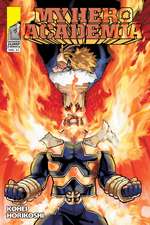Jurassic Park
Autor Michael Crichton Editat de John Milneen Limba Engleză Paperback – 12 apr 2010
Vezi toate premiile Carte premiată
| Toate formatele și edițiile | Preț | Express |
|---|---|---|
| Paperback (2) | 55.60 lei 24-30 zile | +23.15 lei 5-11 zile |
| Random House – 21 mai 2015 | 55.60 lei 24-30 zile | +23.15 lei 5-11 zile |
| BALLANTINE BOOKS – 24 sep 2012 | 63.46 lei 3-5 săpt. | +10.63 lei 5-11 zile |
| Hardback (1) | 145.75 lei 3-5 săpt. | |
| Perfection Learning – 24 sep 2012 | 145.75 lei 3-5 săpt. |
Preț: 61.34 lei
Nou
11.74€ • 12.22$ • 9.92£
Carte indisponibilă temporar
Specificații
ISBN-10: 3192129581
Pagini: 128
Dimensiuni: 129 x 198 x 9 mm
Greutate: 0.14 kg
Editura: Hueber Verlag GmbH
Descriere
From the author of Timeline, Sphere, and Congo, this is the classic thriller of science run amok that took the world by storm.
#1 NEW YORK TIMES BESTSELLER
“Wonderful . . . powerful.”—The Washington Post Book World
An astonishing technique for recovering and cloning dinosaur DNA has been discovered. Now humankind’s most thrilling fantasies have come true. Creatures extinct for eons roam Jurassic Park with their awesome presence and profound mystery, and all the world can visit them—for a price.
Until something goes wrong. . . .
In Jurassic Park, Michael Crichton taps all his mesmerizing talent and scientific brilliance to create his most electrifying technothriller.
“Frighteningly real . . . compelling . . . It’ll keep you riveted.”—The Detroit News
“Crichton’s dinosaurs are genuinely frightening.”—Chicago Sun-Times
“Full of suspense.”—The New York Times Book Review
Notă biografică
Michael Crichton’s novels include The Andromeda Strain, The Great Train Robbery, Congo, Jurassic Park, Rising Sun, Disclosure, and The Lost World. He was as well the creator of the television series ER. Crichton died in 2008.
Extras
Mike Bowman whistled cheerfully as he drove the Land Rover through the Cabo Blanco Biological Reserve, on the west coast of Costa Rica. It was a beautiful morning in July, and the road before him was spectacular: hugging the edge of a cliff, overlooking the jungle and the blue Pacific. According to the guidebooks, Cabo Blanco was unspoiled wilderness, almost a paradise. Seeing it now made Bowman feel as if the vacation was back on track.
Bowman, a thirty-six-year-old real estate developer from Dallas, had come to Costa Rica with his wife and daughter for a two-week holiday. The trip had actually been his wife’s idea; for weeks Ellen had filled his ear about the wonderful national parks of Costa Rica, and how good it would be for Tina to see them. Then, when they arrived, it turned out Ellen had an appointment to see a plastic surgeon in San Jose. That was the first Mike Bowman had heard about the excellent and inexpensive plastic surgery available in Costa Rica, and all the luxurious private clinics in San Jose.
Of course they’d had a huge fight. Mike felt she’d lied to him, and she had. And he put his foot down about this plastic surgery business. Anyway, it was ridiculous, Ellen was only thirty, and she was a beautiful woman. Hell, she’d been Homecoming Queen her senior year at Rice, and that was not even ten years earlier. But Ellen tended to be insecure, and worried. And it seemed as if in recent years she had mostly worried about losing her looks.
That, and everything else.
The Land Rover bounced in a pothole, splashing mud. Seated beside him, Ellen said, “Mike, are you sure this is the right road? We haven’t seen any other people for hours.”
“There was another car fifteen minutes ago,” he reminded her. “Remember, the blue one?”
“Going the other way . . .”
“Darling, you wanted a deserted beach,” he said, “and that’s what you’re going to get.”
Ellen shook her head doubtfully. “I hope you’re right.”
“Yeah, Dad, I hope you’re right,” said Christina, from the backseat. She was eight years old.
“Trust me, I’m right.” He drove in silence a moment. “It’s beautiful, isn’t it? Look at that view. It’s beautiful.”
“It’s okay,” Tina said.
Ellen got out a compact and looked at herself in the mirror, pressing under her eyes. She sighed, and put the compact away.
The road began to descend, and Mike Bowman concentrated on driving. Suddenly a small black shape flashed across the road and Tina shrieked, “Look! Look!” Then it was gone, into the jungle.
“What was it?” Ellen asked. “A monkey?”
“Maybe a squirrel monkey,” Bowman said.
“Can I count it?” Tina said, taking her pencil out. She was keeping a list of all the animals she had seen on her trip, as a project for school.
“I don’t know,” Mike said doubtfully.
Tina consulted the pictures in the guidebook. “I don’t think it was a squirrel monkey,” she said. “I think it was just another howler.” They had seen several howler monkeys already on their trip.
“Hey,” she said, more brightly. “According to this book, ‘the beaches of Cabo Blanco are frequented by a variety of wildlife, including howler and white-faced monkeys, three-toed sloths, and coatimundis.’ You think we’ll see a three-toed sloth, Dad?”
“I bet we do.”
“Really?”
“Just look in the mirror.”
“Very funny, Dad.”
The road sloped downward through the jungle, toward the ocean.
Mike Bowman felt like a hero when they finally reached the beach: a two-mile crescent of white sand, utterly deserted. He parked the Land Rover in the shade of the palm trees that fringed the beach, and got out the box lunches. Ellen changed into her bathing suit, saying, “Honestly, I don’t know how I’m going to get this weight off.”
“You look great, hon.” Actually, he felt that she was too thin, but he had learned not to mention that.
Tina was already running down the beach.
“Don’t forget you need your sunscreen,” Ellen called.
“Later,” Tina shouted, over her shoulder. “I’m going to see if there’s a sloth.”
Ellen Bowman looked around at the beach, and the trees. “You think she’s all right?”
“Honey, there’s nobody here for miles,” Mike said.
“What about snakes?”
“Oh, for God’s sake,” Mike Bowman said. “There’s no snakes on a beach.”
“Well, there might be. . . .”
“Honey,” he said firmly. “Snakes are cold-blooded. They’re reptiles. They can’t control their body temperature. It’s ninety degrees on that sand. If a snake came out, it’d be cooked. Believe me. There’s no snakes on the beach.” He watched his daughter scampering down the beach, a dark spot on the white sand. “Let her go. Let her have a good time.”
He put his arm around his wife’s waist.
Tina ran until she was exhausted, and then she threw herself down on the sand and gleefully rolled to the water’s edge. The ocean was warm, and there was hardly any surf at all. She sat for a while, catching her breath, and then she looked back toward her parents and the car, to see how far she had come.
Her mother waved, beckoning her to return. Tina waved back cheerfully, pretending she didn’t understand. Tina didn’t want to put sunscreen on. And she didn’t want to go back and hear her mother talk about losing weight. She wanted to stay right here, and maybe see a sloth.
Tina had seen a sloth two days earlier at the zoo in San Jose. It looked like a Muppets character, and it seemed harmless. In any case, it couldn’t move fast; she could easily outrun it.
Now her mother was calling to her, and Tina decided to move out of the sun, back from the water, to the shade of the palm trees. In this part of the beach, the palm trees overhung a gnarled tangle of mangrove roots, which blocked any attempt to penetrate inland. Tina sat in the sand and kicked the dried mangrove leaves. She noticed many bird tracks in the sand. Costa Rica was famous for its birds. The guidebooks said there were three times as many birds in Costa Rica as in all of America and Canada.
In the sand, some of the three-toed bird tracks were small, and so faint they could hardly be seen. Other tracks were large, and cut deeper in the sand. Tina was looking idly at the tracks when she heard a chirping, followed by a rustling in the mangrove thicket.
Did sloths make a chirping sound? Tina didn’t think so, but she wasn’t sure. The chirping was probably some ocean bird. She waited quietly, not moving, hearing the rustling again, and finally she saw the source of the sounds. A few yards away, a lizard emerged from the mangrove roots and peered at her.
Tina held her breath. A new animal for her list! The lizard stood up on its hind legs, balancing on its thick tail, and stared at her. Standing like that, it was almost a foot tall, dark green with brown stripes along its back. Its tiny front legs ended in little lizard fingers that wiggled in the air. The lizard cocked its head as it looked at her.
Tina thought it was cute. Sort of like a big salamander. She raised her hand and wiggled her fingers back.
The lizard wasn’t frightened. It came toward her, walking upright on its hind legs. It was hardly bigger than a chicken, and like a chicken it bobbed its head as it walked. Tina thought it would make a wonderful pet.
She noticed that the lizard left three-toed tracks that looked exactly like bird tracks. The lizard came closer to Tina. She kept her body still, not wanting to frighten the little animal. She was amazed that it would come so close, but she remembered that this was a national park. All the animals in the park would know that they were protected. This lizard was probably tame. Maybe it even expected her to give it some food. Unfortunately she didn’t have any. Slowly, Tina extended her hand, palm open, to show she didn’t have any food.
The lizard paused, cocked his head, and chirped.
“Sorry,” Tina said. “I just don’t have anything.”
And then, without warning, the lizard jumped up onto her outstretched hand. Tina could feel its little toes pinching the skin of her palm, and she felt the surprising weight of the animal’s body pressing her arm down.
And then the lizard scrambled up her arm, toward her face.
“I just wish I could see her,” Ellen Bowman said, squinting in the sunlight. “That’s all. Just see her.”
“I’m sure she’s fine,” Mike said, picking through the box lunch packed by the hotel. There was unappetizing grilled chicken, and some kind of a meat-filled pastry. Not that Ellen would eat any of it.
“You don’t think she’d leave the beach?” Ellen said.
“No, hon, I don’t.”
“I feel so isolated here,” Ellen said.
“I thought that’s what you wanted,” Mike Bowman said.
“I did.”
“Well, then, what’s the problem?”
“I just wish I could see her, is all,” Ellen said.
Then, from down the beach, carried by the wind, they heard their daughter’s voice. She was screaming.
PUNTARENAS
“I think she is quite comfortable now,” Dr. Cruz said, lowering the plastic flap of the oxygen tent around Tina as she slept. Mike Bowman sat beside the bed, close to his daughter. Mike thought Dr. Cruz was probably pretty capable; he spoke excellent English, the result of training at medical centers in London and Baltimore. Dr. Cruz radiated competence, and the Clinica Santa Maria, the modern hospital in Puntarenas, was spotless and efficient.
But, even so, Mike Bowman felt nervous. There was no getting around the fact that his only daughter was desperately ill, and they were far from home.
When Mike had first reached Tina, she was screaming hysterically. Her whole left arm was bloody, covered with a profusion of small bites, each the size of a thumbprint. And there were flecks of sticky foam on her arm, like a foamy saliva.
He carried her back down the beach. Almost immediately her arm began to redden and swell. Mike would not soon forget the frantic drive back to civilization, the four-wheel-drive Land Rover slipping and sliding up the muddy track into the hills, while his daughter screamed in fear and pain, and her arm grew more bloated and red. Long before they reached the park boundaries, the swelling had spread to her neck, and then Tina began to have trouble breathing. . . .
“She’ll be all right now?” Ellen said, staring through the plastic oxygen tent.
“I believe so,” Dr. Cruz said. “I have given her another dose of steroids, and her breathing is much easier. And you can see the edema in her arm is greatly reduced.”
Mike Bowman said, “About those bites . . .”
“We have no identification yet,” the doctor said. “I myself haven’t seen bites like that before. But you’ll notice they are disappearing. It’s already quite difficult to make them out. Fortunately I have taken photographs for reference. And I have washed her arm to collect some samples of the sticky saliva--one for analysis here, a second to send to the labs in San Jose, and the third we will keep frozen in case it is needed. Do you have the picture she made?”
“Yes,” Mike Bowman said. He handed the doctor the sketch that Tina had drawn, in response to questions from the admitting officials.
“This is the animal that bit her?” Dr. Cruz said, looking at the picture.
“Yes,” Mike Bowman said. “She said it was a green lizard, the size of a chicken or a crow.”
“I don’t know of such a lizard,” the doctor said. “She has drawn it standing on its hind legs. . . .”
“That’s right,” Mike Bowman said. “She said it walked on its hind legs.”
Dr. Cruz frowned. He stared at the picture a while longer. “I am not an expert. I’ve asked for Dr. Guitierrez to visit us here. He is a senior researcher at the Reserva Biologica de Carara, which is across the bay. Perhaps he can identify the animal for us.”
“Isn’t there someone from Cabo Blanco?” Bowman asked. “That’s where she was bitten.”
“Unfortunately not,” Dr. Cruz said. “Cabo Blanco has no permanent staff, and no researcher has worked there for some time. You were probably the first people to walk on that beach in several months. But I am sure you will find Dr. Guitierrez to be knowledgeable.”
Dr. Guitierrez turned out to be a bearded man wearing khaki shorts and shirt. The surprise was that he was American. He was introduced to the Bowmans, saying in a soft Southern accent, “Mr. and Mrs. Bowman, how you doing, nice to meet you,” and then explaining that he was a field biologist from Yale who had worked in Costa Rica for the last five years. Marty Guitierrez examined Tina thoroughly, lifting her arm gently, peering closely at each of the bites with a penlight, then measuring them with a small pocket ruler. After a while, Guitierrez stepped away, nodding to himself as if he had understood something. He then inspected the Polaroids, and asked several questions about the saliva, which Cruz told him was still being tested in the lab.
Finally he turned to Mike Bowman and his wife, waiting tensely. “I think Tina’s going to be fine. I just want to be clear about a few details,” he said, making notes in a precise hand. “Your daughter says she was bitten by a green lizard, approximately one foot high, which walked upright onto the beach from the mangrove swamp?”
“That’s right, yes.”
“And the lizard made some kind of a vocalization?”
“Tina said it chirped, or squeaked.”
“Like a mouse, would you say?”
“Yes.”
“Well, then,” Dr. Guitierrez said, “I know this lizard.” He explained that, of the six thousand species of lizards in the world, no more than a dozen species walked upright. Of those species, only four were found in Latin America. And judging by the coloration, the lizard could be only one of the four. “I am sure this lizard was a Basiliscus amoratus, a striped basilisk lizard, found here in Costa Rica and also in Honduras. Standing on their hind legs, they are sometimes as tall as a foot.”
“Are they poisonous?”
“No, Mrs. Bowman. Not at all.” Guitierrez explained that the swelling in Tina’s arm was an allergic reaction. “According to the literature, fourteen percent of people are strongly allergic to reptiles,” he said, “and your daughter seems to be one of them.”
“She was screaming, she said it was so painful.”
“Probably it was,” Guitierrez said. “Reptile saliva contains serotonin, which causes tremendous pain.” He turned to Cruz. “Her blood pressure came down with antihistamines?”
“Yes,” Cruz said. “Promptly.”
“Serotonin,” Guitierrez said. “No question.”
Still, Ellen Bowman remained uneasy. “But why would a lizard bite her in the first place?”
Premii
- Audies Finalist, 2016
